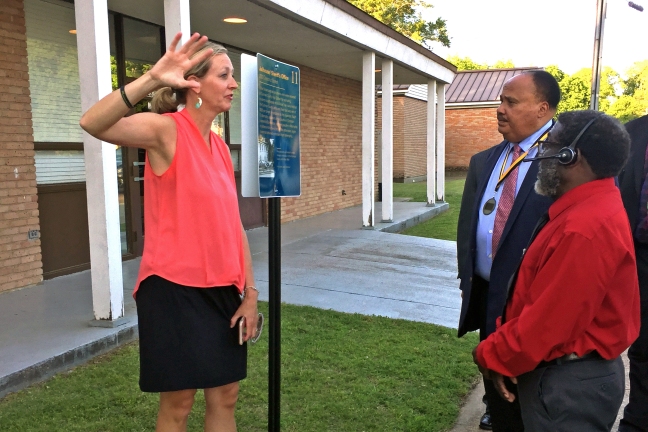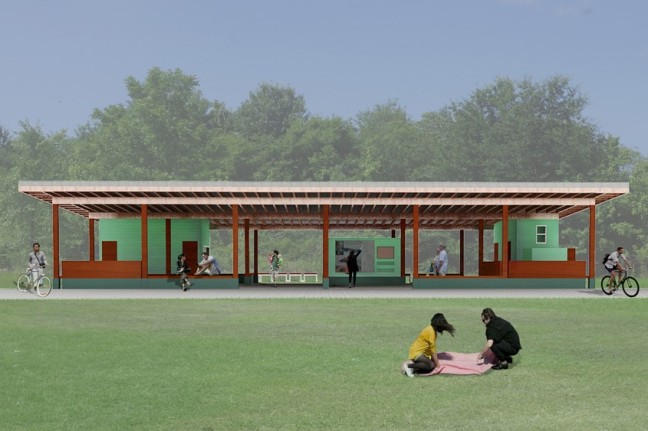MARKS, Miss.—As part of its weeklong celebration of the 50th anniversary of the Poor People’s Campaign, Carl Small Town Center Director Leah Kemp was invited to the community of Marks, Mississippi, to tour Martin Luther King III through the Marking the Mule interpretive trail.
Designed by the Carl Small Town Center (CSTC), the multi-modal Marking the Mule interpretive trail highlights the Marks Mule Train Civil Rights campaign, a vision of Dr. Martin Luther King, Jr. in the 1960s.
In July 2015, the CSTC was awarded a $25,000 Our Town grant by the National Endowment for the Arts to work with the community to vision a way to commemorate the historic civil rights campaign.
The yearlong public outreach campaign project engaged local residents, historians, architects and planners. The CSTC developed interpretive pedestrian and vehicle trails along with corresponding signage highlighting Civil Rights-related sites in Marks. The project also included a master plan for the designated Trailhead Park and the construction of a welcome sign showing interactive maps for new trails.
The CSTC recently received two statewide awards for its Marking the Mule project, which focused on advancing citizen engagement in the Marks community – a 2017 Public Outreach Award from the Mississippi Chapter of the American Planning Association and an AIA Design Award from the Mississippi Chapter of the American Institute of Architects.
You can learn more about the Marking the Mule project on our projects page.


